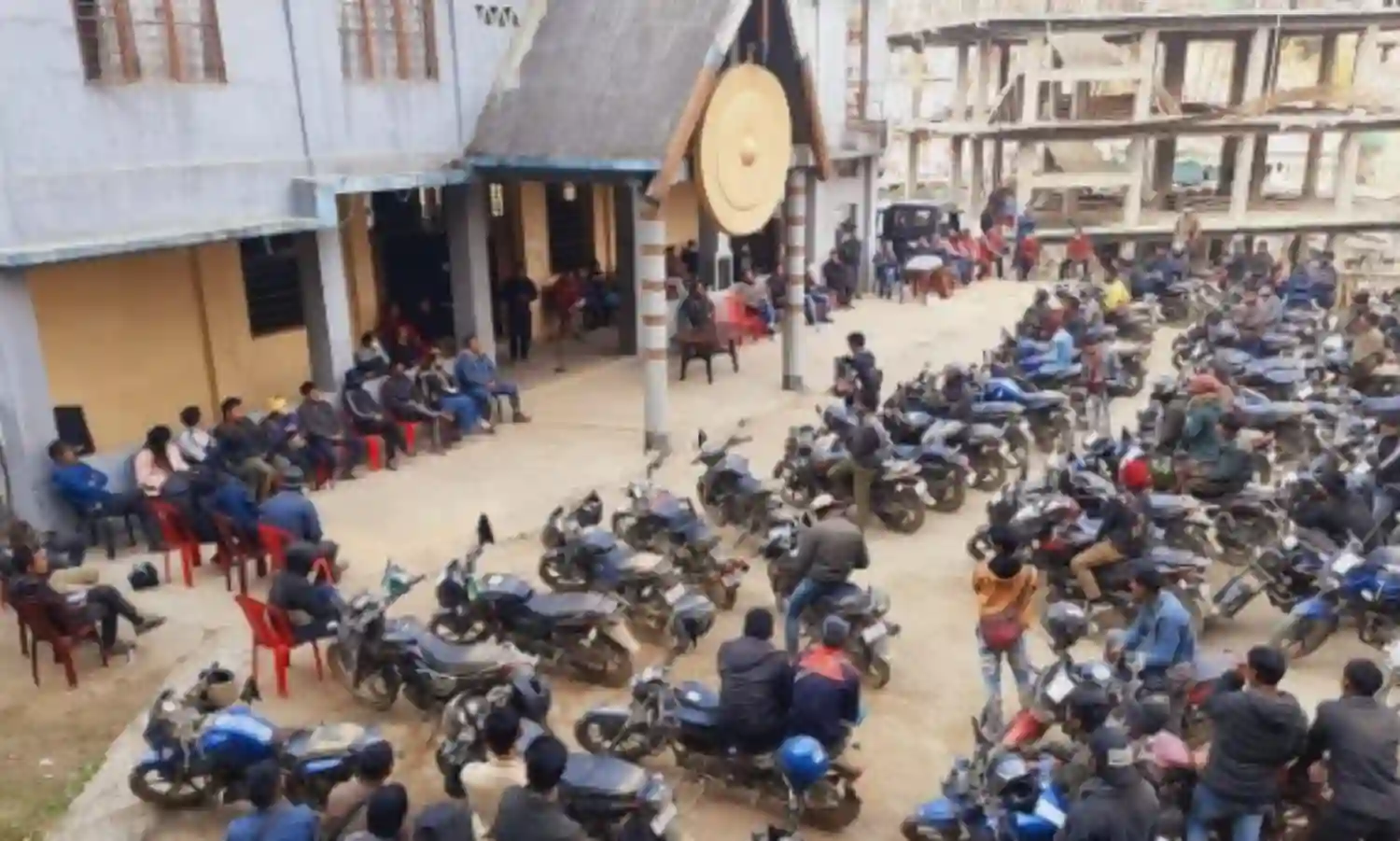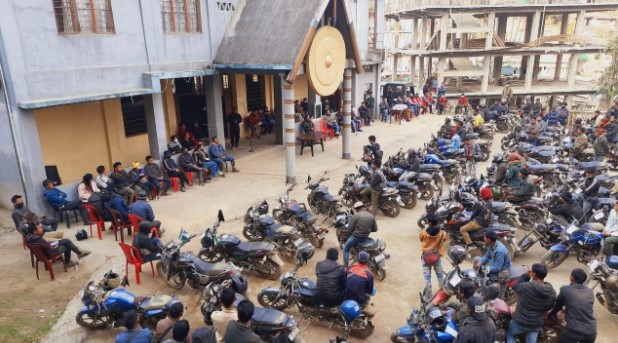‘Now They Have Started a Slogan… Justice for Oting’
‘Only two witnesses from the area were interviewed for the army enquiry’

KOLKATA: A month since the Oting village killings in the Mon district of Nagaland, where the Indian Army killed 14 unarmed civilians, the survivors and residents of Mon are yet to see any significant headway in investigation or redress.
Meanwhile the Indian government on December 30 extended the Armed Forces (Special Powers) Act for a further six months in Nagaland the whole of which it considers a “disturbed area”.
Instituted by the colonial government at the onset of the Quit India movement, AFSPA gives troops in “disturbed areas” the power to prohibit gatherings, fire upon civilians after warning them as necessary, and arrest civilians without a warrant on reasonable suspicion. It protects these soldiers from prosecution in civilian courts without permission from the Union government.
Following outrage from the residents of Oting, the government, army and sections of the media have repeatedly stated that the shooting was a “botched operation”, the result of mistaken identity.
Many local residents as well as the Konyak Union, the apex civil society organisation of the Indigenous communities of Nagaland, have called this claim a lie. They say the soldiers fired without provocation or warning, in broad daylight from a superior position, and when caught trying to cover up the civilians’ dead bodies opened fire again, wounding many on their way back to base.
The Konyak Union on December 27 released a press statement demanding swift justice for the families of those killed, and action against the perpetrators. They have given New Delhi until January 10 to come up with a satisfactory response to Oting residents’ queries.
“The 10th is the expiry date. Then we will be having a meeting again on 18th, with all the Konyak Advisory Councils… We have more than 13-14 units in the Mon district. Since Konyak is one of the biggest tribes in Nagaland,” said Wango Konyak, general secretary of the KU.
The meeting on January 18 “is to discuss the next steps if the justice is not delivered on the day of expiry,” Konyak told The Citizen.
The KU’s press statement argues that the state investigation into the matter is sorely lacking. It regrets that nobody from the scene of the killings has been invited to form part of the Enquiry Committee set up to decide on the repeal of AFSPA from the area.
The statement continues,
“The Konyak CSO also out-rightly appeals before the members in the Committee to consider the value of humanity on utmost priority while framing its recommendation reports. Human rights and value had been ignored and neglected for so many decades and under such circumstances, so many violations and atrocities had been inflicted… The Konyak CSO out-rightly declares that it requires no security who fails to provide security to its citizen[s].”
It remarks that the check-gate of the Tiru Police Outpost Station still remains unmanned. This check gate was the entry point for the troops who fired upon civilians in Oting on December 4. Following the massacre, the state government promised that the issue would be addressed within five days – but has taken no action so far.
The statement adds that the Konyak Nagas of Mon were also “extremely disturbed and hurt” by the army contingent that approached them for enquiry on December 29, as it included members of the accused regiment:
“The army contingent that arrived on the 29th Dec 2021 to the incident place, Tiru, led by a Major General left a lot to be desired. The Konyaks were extremely disturbed and hurt to see the army contingent accompanied by the killers, i.e, 21 Para of Jorhat. This shows total disregard of the Konyak customary practices/ institutions upheld at the highest level.”
It goes on to report that only two witnesses from the area were interviewed for the army inquiry.
“Their half hearted attempts to finish the inquiry at the earliest shows their insincerity and lack of empathy or remorse. This goes to show that they were merely doing lip service by reaching the spot. Unless and until there is a serious effort and desire to reach out to the people, who have been hurt by their actions, there can never be peace and harmony.”
It holds the elected governments squarely responsible for justice and redress:
“Improvement or deterioration of the current/prevailing situation solely lies upon the seriousness of the State Government… The Konyaks alone shall not be held responsible for any untoward situation that may arise in future.”
Meanwhile, the Oting Students’ Union have also appealed to the investigation team formed by the Nagaland government to include statements from:
– The two survivors of the 4th December massacre incident who have shifted back to Mon from Dibrugarh Medical College
– The injured ex-army man Mr. Chongmoi Konyak
– The doctors of the DHM who have conducted post mortem on 5th Dec 2021
– The District administration and the Law enforcing Authority of the District
– And the Konyak CSOs if required.
(In July 2021 the sole opposition NPF party joined the NDPP-BJP government. Since then the Nagaland legislature has no opposition representatives.)
On Thursday January 6 the Oting Students’ Union took out a bike rally in Tizit, where around 200 bikers rode from Tizit town to Mon town via Oting village, where they stopped for a short prayer service.
“All the bikers were students from around 38 villages under the Tizit area,” said KU vice-president Honang Konyak. They held this rally instead of their week long area sports meet.
“They have cancelled the week long sports in demand for justice for Oting. In a remote district like Mon, the area sports meet is the only option where the younger generation gathers, shares their aspirations and strive to build their dreams… Now they have started a slogan… ‘Justice for Oting’”.
The Konyak Union statement concludes, “It is time for the Government of India to prove whether we are its citizen[s] or not.”




